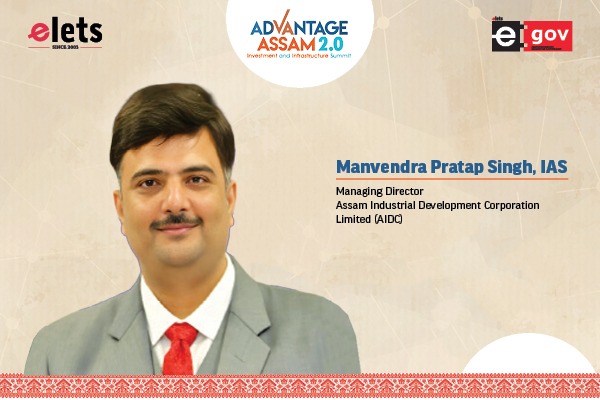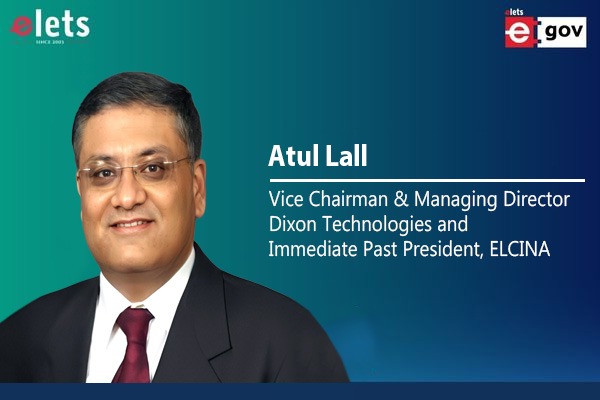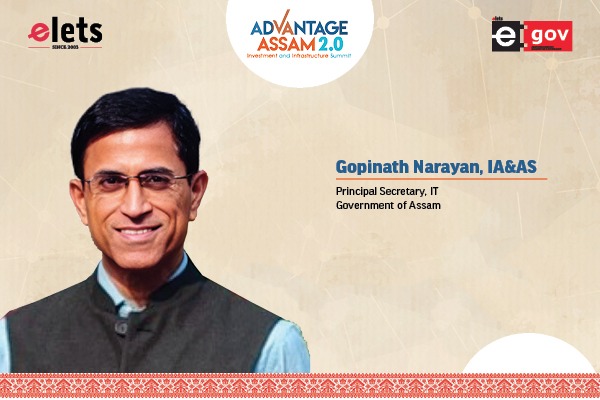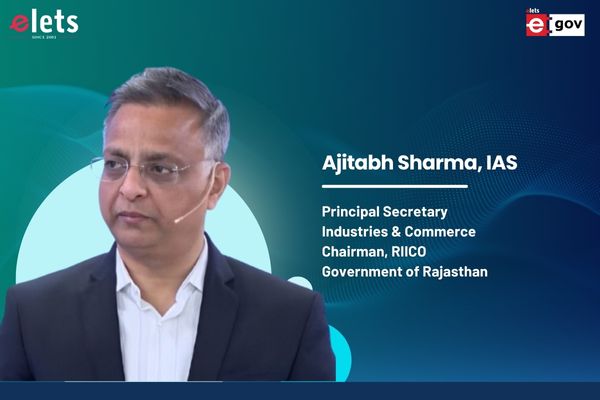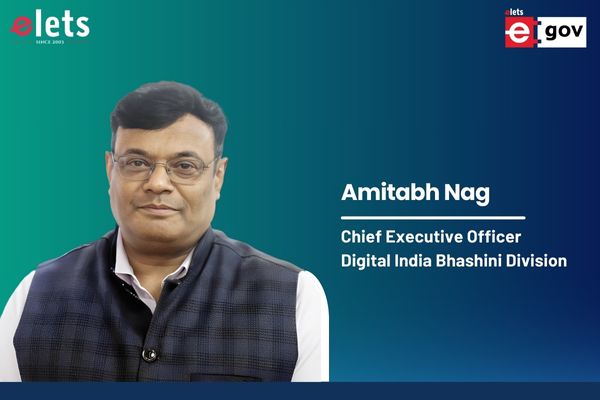
In the dynamic landscape of India’s energy sector, where sustainable practices and technological innovation take center stage, Gujarat Power Corporation Ltd (GPCL) emerges as a pioneering force. With a strategic focus on renewable energy, grid modernization, and cutting-edge technologies, GPCL is at the forefront of shaping a resilient and eco-friendly energy future for the state of Gujarat, shared Arun Mahesh Babu, IAS, Managing Director, Gujarat Power Corporation Limited & Uttar Gujarat Vij Company Limited in an exclusive interaction with Hemangini S Rajput of Elets News Network (ENN). Edited excerpts:
Due to the increasing focus on renewable energy in India, how is Gujarat Power Corporation Ltd adapting its strategies to integrate more renewable sources like solar and wind power into its energy mix? What challenges and opportunities do you foresee in this transition?

Gujarat has unveiled its renewable energy policy focusing on leveraging the State’s potential of 36 GW of solar and 143 GW of wind capacity to enable a cost-effective and reliable power supply. GPCL, as designated Nodal agency for solar and other renewable energy projects by the Government of Gujarat, is leading from the front and is well committed to achieving the Hon’ble Prime Minister’s vision to fight climate change and achieve Zero Carbon Emissions by 2070.

The State’s Renewable power generation capacity stands at 22,435 MW as of today, intending to become a global hub for the Renewable Power sector and has laid out an ambitious plan for hydrogen manufacturing in the State. Out of total installed power generation, approximately 46.24 % is Renewable Energy which makes ~12.5% of India’s total Installed Renewable Energy capacity (including large hydro).

We have started the World’s Biggest RE Park at Khavda in Kachchh, with a total generation capacity of 30GW by December 2026. This will be the first of its kind, which will have multiple energy generation sources mainly Wind, Solar and equipped with Battery Based Energy Storage systems (BESS).

The Renewable Energy sector offers opportunities for job creation, ranging from manufacturing and installation to research and development, by diversifying the energy mix, we are on the path of creating a more resilient and robust energy system, reducing vulnerability to supply disruptions and price fluctuations.
Advancements in renewable energy technologies are necessary to improve efficiency, reduce costs, and address the challenges associated with intermittent storage. As the current estimated cost of 6-Hour BESS is around 10 Crore/MW, developing costeffective and efficient energy storage technologies is crucial for storing excess energy generated during peak times and supplying it during periods of low renewable energy production. The large-scale deployment of renewable energy infrastructure may impact ecosystems and biodiversity, balancing the need for clean energy with environmental conservation is also one of the challenges.
Could you elaborate on the steps Gujarat Power Corporation Ltd is taking towards grid modernization and infrastructure development to meet the growing demand for electricity in the state?
We are working on deploying energy storage systems to store excess energy during periods of high generation and release it during peak demand times, pumped storage, or other storage solutions to enhance grid flexibility.
The Modhera Sun Temple & Village is fully solarized with a 6 MW Grid Connected Ground-Mounted Solar PV Power Plant & 15MWh Battery-based Energy Storage System that shows our capabilities in new technology implementation.
How are you leveraging cutting-edge technologies like AI and IoT to enhance the efficiency and reliability of power distribution in Uttar Gujarat Vij Co Ltd? Can you share any specific projects or initiatives in this area?
At GPCL, we leverage AI (Artificial Intelligence) and IoT (Internet of Things) to enhance the efficiency and reliability of electricity distribution in a state. We have already started deploying sensors across the power grid to monitor and collect data on voltage, current, power quality, and other relevant parameters.
We are establishing a robust data collection and management system to handle the massive amounts of data generated by IoT sensors and other devices. Our goal is to make the grid dynamically adjust voltage levels, reroute power, and implement a proper load balancer.
Implementing AI algorithms is crucial for analyzing the collected data, identifying patterns, anomalies, and gaining deep insights. For example, determining which month generally has the highest energy requirement, identifying the peak time every day, and forecasting the energy requirement in upcoming months are essential. Predictive models play a key role in addressing potential failures, identifying areas prone to outages, and optimizing energy distributions. GPCL is planning to upgrade the existing infrastructure to enable bidirectional communication between devices, allowing real-time data exchange.
Uttar Gujarat Vij Co Ltd was awarded as the Best-Performing Power Distribution Utility by the Central Board of Irrigation & Power (CBIP), New Delhi, in 2020. To upgrade the existing infrastructure for betterment of monitoring of consumed power, authorities are implementing smart metering systems across the state. These measures will further enhance power distribution efficiency.
In light of the urgent need for sustainable practices, what are the key environmental goals for your organization, and how are you planning to achieve them? What measures are you implementing to reduce the carbon footprint of power generation and distribution?
To maintain global warming within the desired thresholds of 2°C, ideally, no more than 1.5°C, worldwide greenhouse gas (GHG) emissions must decrease by 25 to 50 per cent over the current decade. In the pursuit of a greener and more sustainable future, Gujarat has implemented the Centre’s Carbon Credit Trading Scheme (CCTS) in the state.
An MOU was signed between the Government of Gujarat, the Energy Policy Institute University of Chicago, and J-PAL of South Asia. As a result of this MOU, Gujarat is set to become the first state in the country to consider carbon market planning. The state has initiated a significant pilot project for the Trading Scheme for ‘Particulate Matter’ in Surat, in collaboration with the Forest, Environment, and Climate Change Department, Central Pollution Control Board, and Gujarat Pollution Control Board. About 350 highly polluted industries in Surat are benefitting from this project, leading to a 24% reduction in emissions and a consequent improvement in air quality.
Gujarat is actively exploring and prioritizing renewable energy sources, such as solar, wind, hydro, and geothermal power. The state is in the process of setting up offshore windmills with a capacity of 32-36 GW. Additionally, onshore windmills along the seashore of Bhavnagar are planned. This ambitious project envisions a wind power generation capacity of 2GW.
By 7th January 2024, Government of Gujarat signed 20 MoUs for a proposed investment of INR 9 L Crore in the field of Green Hydrogen. The aim is to make Gujarat a preferred destination for green hydrogen and derivatives production and exports, with a target of 10,000 tons per annum (TPA) green hydrogen production capacity by 2025. There is also potential to reach a capacity of 1 million tons per annum (MTPA) by 2030, supporting India’s ambition of becoming energy independent by 2047.
As a leader in the energy sector, what are your future endeavors and vision for the industry? How do you plan to influence the direction of energy development and policy in India in the coming years?
We’re tackling issues like making clean energy financially viable, finding ways to scale projects up, and deciding which clean technologies to invest in, all while competing with different energy options, each country has its unique challenges and opportunities like Gujarat has been blessed with 1600 km of coastline which is great opportunity for onshore and offshore wind projects, similarly Rajasthan has Thar desert which they are utilizing for solar parks.
Solving nation’s energy challenge, is a big task. So, we’re encouraged to come up with fresh ideas and work together, to create a cleaner and more secure energy system. The Country needs an affordable, reliable, and sustainable energy system, and for this global undertaking, we need stakeholders from across the private sector, Government, and academia. Factors like robust economic growth, the adoption of renewable energy, collaboration with other nations, and working together regionally are all crucial pieces of the puzzle for the future of energy. With our collective efforts, these challenges will become opportunities for a cleaner and sustainable world.
Be a part of Elets Collaborative Initiatives. Join Us for Upcoming Events and explore business opportunities. Like us on Facebook , connect with us on LinkedIn and follow us on Twitter, Instagram.
"Exciting news! Elets technomedia is now on WhatsApp Channels Subscribe today by clicking the link and stay updated with the latest insights!" Click here!




